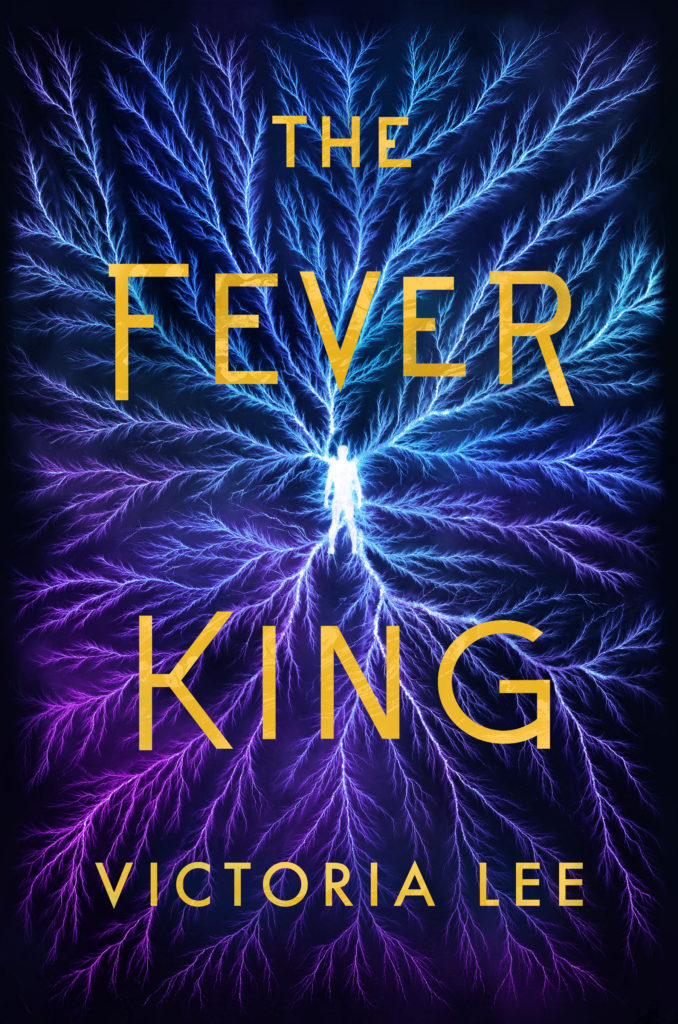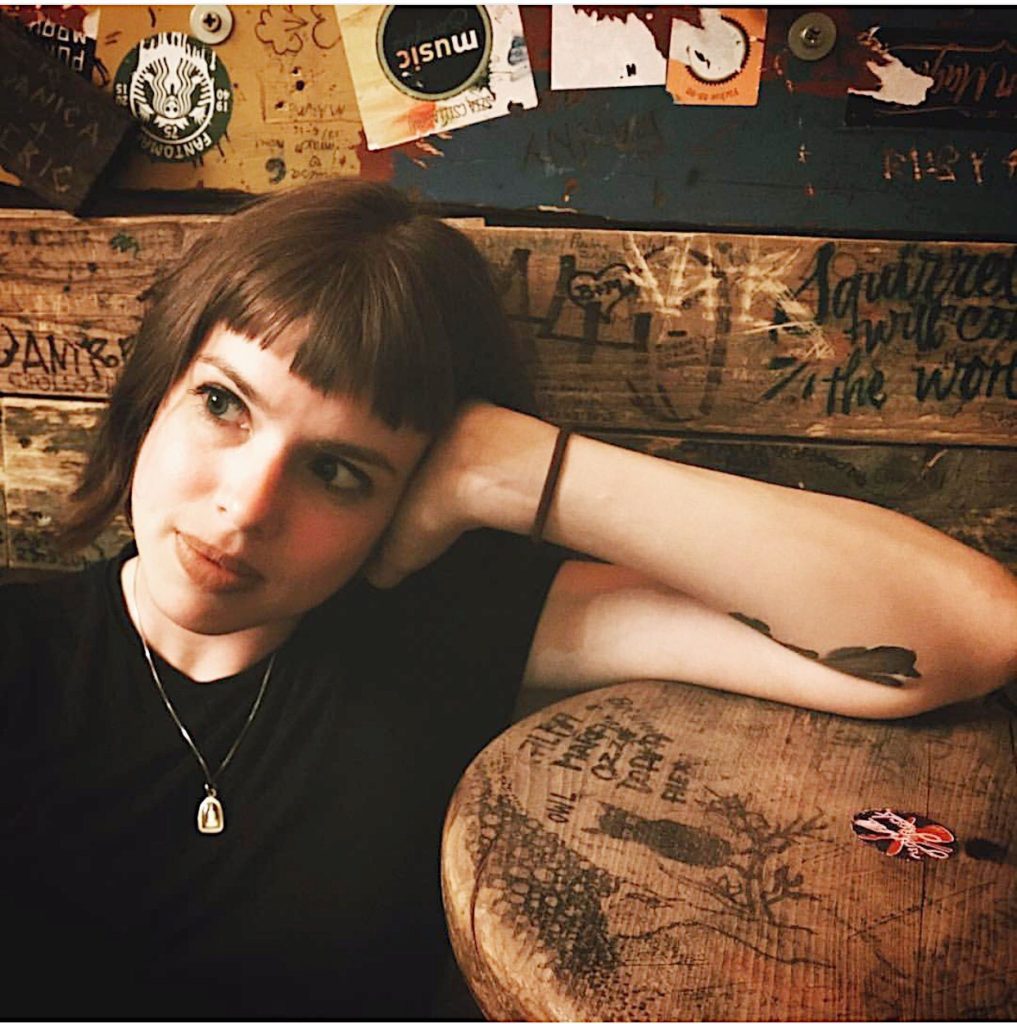Author Crush Friday with Victoria Lee
Glitter girls, you have pressing questions for your favorite authors and we have their answers. Welcome to our weekly segment, Author Crush Fridays.
We love asking questions and we love the answers from some of our favorite authors. Today we’re talking to Victoria Lee, author of the new YA issue-driven thriller, The Fever King (March 1, 2019; Skyscape). Did you know that Victoria is a Ph.D. student in psychology and cognitive neuroscience, or that much of The Fever King comes from personal experience? We didn’t, but loved learning that about this prolific author. Thank you for talking to us today, Victoria! We’re honored! If you haven’t picked up The Fever King yet, run, don’t walk to grab this one at your local bookstore!
GLITTER:Tell us five things that people might not know about you.
VICTORIA:
- I almost lived in Kurt Vonnegut’s old house. But then they wouldn’t allow dogs, so instead I lived in grad student housing. Anticlimactic.
- I started an anti-authority movement in high school that spiraled into vandalism and mass class walk-outs. The principal swore he’d expel the ringleader, but luckily, he never found out it was me.
- I used to speak fluent Mandarin Chinese.
- One time I decided to flavor an apple pie with peppermint extract. It was disgusting.
- I once spent thirty-six straight hours studying in the library, without sleep or food, during college. Never again.
GLITTER: How would you describe your writing to a new reader?
VICTORIA: Stylistically or content-wise? Stylistically, I’d say The Fever King at least is written in a relatively gritty kinda voice. Lots of curse words and sentence fragments. I also like a good metaphor. Content-wise, my novel has antiheroes and morally gray choices and a lot of angst and anarchist boys and queer kids and people doing the wrong things for all the right reasons.
GLITTER: How do you find the emotional truths in your writing?
VICTORIA: So much of TFK in particular is based off personal experience, so it was easy to draw off that to construct certain character and plot arcs. But in terms of actually translating those emotions into prose…I listen to a lot of music. I have massive 200+ song playlists for every book I write and I listen to them on repeat while crying in the shower until I figure out how to make readers feel as broken over these characters as I do.
GLITTER: What one question sparked the whole plot of The Fever King?
VICTORIA: “How do intergenerational and personal trauma intersect? What happens when doing the right thing means facing what you fear the most?”
GLITTER: Have any present-day issues affected any of the plot points in your novel?
VICTORIA: I wrote this book before the Trump era, although the immigration storyline in The Fever King certainly feels particularly prescient now. This plot was originally inspired, however, by Jewish experiences both contemporary and historical.
GLITTER: Is The Fever King a personal book for you in any way?
VICTORIA: In a lot of ways, really. Both because so much of it was drawn from personal experiences with anti-Semitism and feeling like an outsider as a Jewish person, but also because many characters deal with painful experiences I’ve shared (including abuse, addiction, depression…).
GLITTER: In The Fever King your three main characters experience trauma in different ways. Did any of that come from personal experience, and what one message do you hope readers walk away with?
VICTORIA: Yes—honestly a lot of it was from personal experience. And I hope readers who have shared that experience walk away feeling seen and understood. In particular, I wanted to represent characters who aren’t the “typical” victims people often talk about in the media. There’s so many ways survivors can blame themselves and be blamed by other people for violence done against them. Survivors will be blamed because they’re promiscuous, or mentally ill, or struggling with addiction—as if all these aren’t often the direct result of trauma.
GLITTER: Do you have any particular writing rituals?
VICTORIA: Not really. I do a lot of writing in coffee shops. I find it difficult to get work done at home because I’ve associated home with Netflix.
GLITTER: What character do you relate most to?
VICTORIA: I relate to Noam and Dara both in different ways. I think personality-wise I’m more like Noam. But I have a massive soft spot for Dara.
GLITTER: Do you have anything that you love to collect?
VICTORIA: Nothing that I go out of my way to collect…unless you count books. I think have four or five copies of The Secret History. I have six copies of The Picture of Dorian Gray.
GLITTER: What one piece of advice could you give any teen going through difficult times now?
VICTORIA: Find outside support. If that can’t be your parents, or counselor, or friend, don’t stop looking. I found online communities especially helpful when I was struggling as a teen—my parents believed my abuser over me, so I wasn’t comfortable relying on anyone I knew in real life. Online friendships can be just as full and real and supportive as “real life” ones. But it’s important to make those connections. It’s especially valuable to talk to people who have been through the same things you’re going through and come out on the other side. If you can build a relationship with someone like that who can serve as a mentor for you as you work through these difficult times, it can help a lot.
GLITTER: Did any of the authors you read in high school affect how you write now?
VICTORIA: Almost definitely! I feel like every book we read as authors influences our writing style and the kinds of subjects we choose to write about. Some of my favorite authors when I was a teen include Garth Nix, Laurie Halse Anderson, Oscar Wilde, Elizabeth Kostova, Yevgeny Zamyatin, Diana Wynne Jones, and Tamora Pierce among others.
GLITTER: What are you passionate about in life?
VICTORIA: Wow, that’s a big question! I’m a Ph.D. student in psychology and cognitive neuroscience, so I’m definitely passionate about science—particularly the science of emotions and intergroup relations and how collective social movements form. I also am pretty politically passionate; I’m very far-left (as you might guess from reading The Fever King) and I care a lot about educating people on leftist ideology and bringing antifascist action into the mainstream. I also really love dogs!
GLITTER: What are you working on right now?
VICTORIA: I’m working on revisions for the sequel to The Fever King. I also have a couple other new novel ideas rattling around in there—and have even written some of them!—but I’m scared of talking too much about that until I’m sure I’ll be able to actually publish them.
Website|Twitter|Facebook|Instagram

Editorial Director | Writer | Tweet me @heatherriccio







